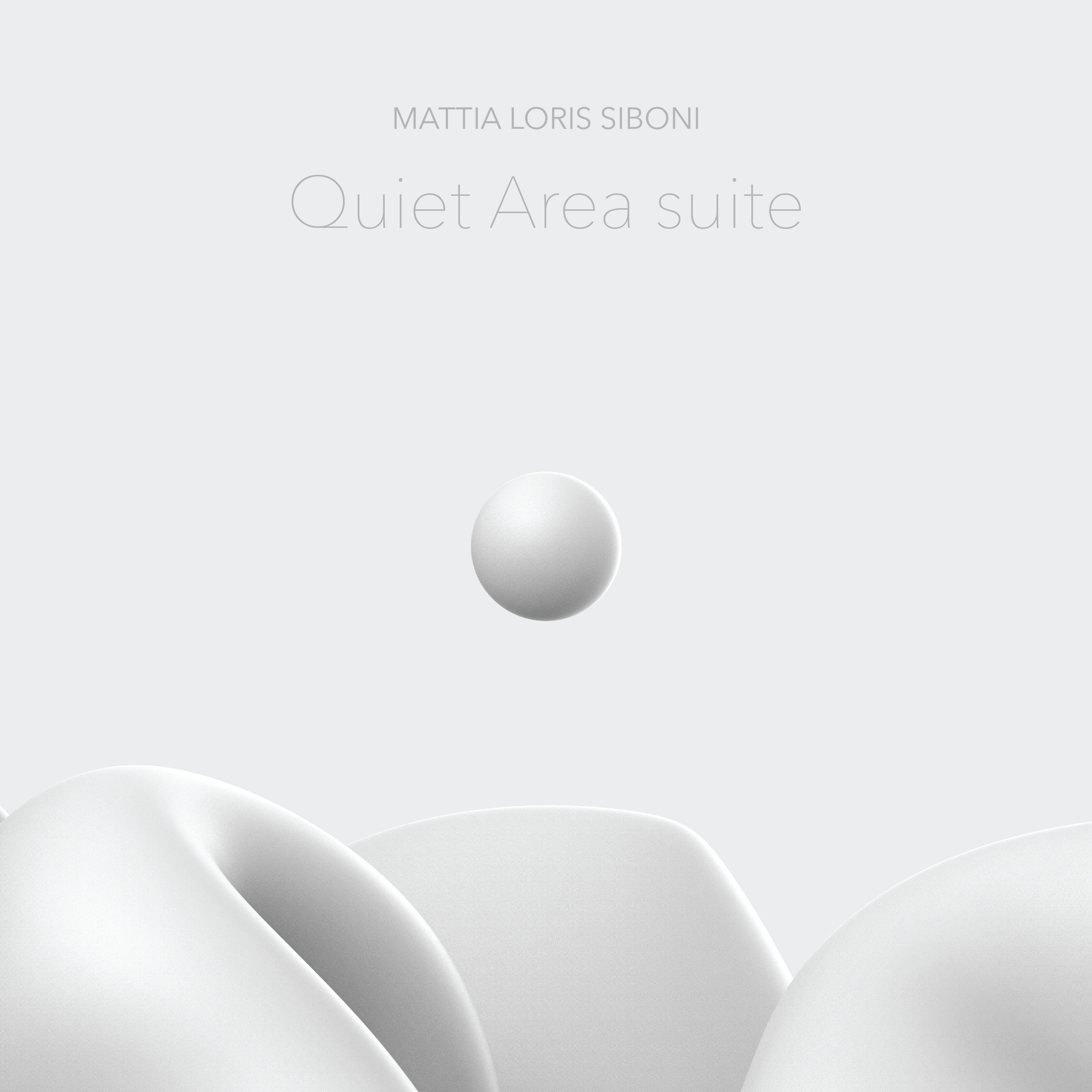
How many times do we look for it? How many times does it scare us and we try to avoid it? But also how many times does it surprise us? It enters into our lives every day, conveyed by the numerous contexts to which it belongs: from the religious to the poetic, from the naturalistic to the socio-anthropological or scientific ones. It can astonish us during a walk in the mountains, miles away from the urban buzz, or it can oppress us within four walls. Silence in itself does not exist or perhaps it is not possible for us to hear it.
Quiet Area suite, the second album by composer, musician, improviser and sound designer Mattia Loris Siboni out today March 5, 2021 on CD and digital platforms via Slowth Records, derives from a simple question: “How many types of silence exist?”. Yes, because you can find so many kinds of silence, in music as in the ordinary life. This project is a collection of four acousmatic pieces, born from the desire to explore silence as an object of compositional investigation through its different types of form and use. The suite was composed with the intention of accompanying the listener to the experience of silence. How does silence permeate between the poetic and poietic level of the work? And how does the singular reflection of personal experience affect listening?
The four tracks – the first extract Now Hush and Look Around, Mind The Gap, Balumina and Qui nella maestà del silenzio – deal with different themes and materials: evocation, the call to silence, is traceable in the appearance and disappearance, in waiting, in the memory of a familiar voice, in the residual sounds as in the soundscape. These tracks are not intended as “studies” but as a result of the application of a constantly evolving research; silence is not present in a didactic way but is observed according to all its audible and evocative meanings. The goal is to stimulate in the listener an even minimal personal search for awareness of silence in every possible aspect.
Now Hush and Look Around is the suite’s introductory movement and is characterized by the presence of pre-existing material (short film quotes from Federico Fellini’s 8½, DreamWorks’ Shrek, Pixar’s Toy Story and Ratatouille), which allow the investigation of the silence evoked and more precisely of the silence suggested.
In the macro-structure of the suite Mind The Gap is the gap itself between the first track and the third one, tackles the idea of digital silence and works on background noise and therefore on the threshold of silence varying it continuously as the background noise varies, and on the relationship between appearance and disappearance of the various elements, all of electronic and residual origin, except for a real element which consists of a recording of glassy material.
Balumina – that’s the name attributed to one of the three sides of a sail – is the climax piece, the fulcrum of the entire suite, and is the most complex and articulated episode, which deals with silence from the point of view of the soundscape, with field recordings taken in Cagliari enhancing the contrast between the quieter part of the city, that is to say the port, especially at night, and the more chaotic urban part.
The last track, Qui nella maestà del silenzio, has a final function and addresses the transparency of silence through words and a suffocating silence that is a mirror of the total silence given by death: the idea derives from the observation of silence inside of the monumental Cemetery of the Certosa in Bologna, and is to merge environmental silence with the non-silence given by the words that inhabits the cemetery through their presence on the tombstones; more precisely, the silences of the Cemetery are related to vocals reciting various epigraphs, which among other things often recall musical elements or even mention silence as a characteristic element of the place itself.
“Choosing silence does not mean depriving yourself of something but having the possibility to welcome everything! I chose silence because, to listen to it and enjoy it, you have to stop yourself: the first necessary silence is the interior one. As a composer, but above all as a listener, I am intrigued by how all this can be reflected in the musical field, looking for a silence that is not only absence”.
And now it’s time for music, or better to say for silence, listening Quiet Area suite.


